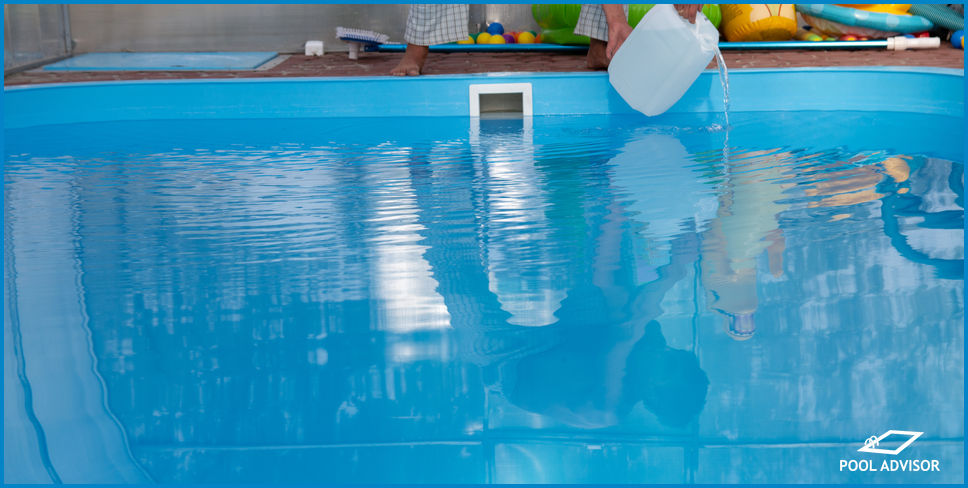
Homemade Pool Flocculant / Clarifier - Can You Make It Yourself?
When trying to clear up dirty or muddy pool water that is contaminated with small particles of debris, you will need to use a pool flocculant or a clarifier. Flocculants and clarifiers work in different ways, but they both actively help you remove water-contaminating particles from your pool.
Some pool chemicals have at-home D.I.Y. substitutes that work great, such as baking soda for clearing up a cloudy pool caused by low pH, while other treatments have no homemade equivalent.
In this article we will review the differences between clarifiers and flocculants, the chemicals found in these products, household substitutions you may use in place of them, and clarifying products that we recommend.
Chemistry of Pool Clarifiers
Flocculants vs Clarifiers
Most people have heard of pool clarifiers, but ‘flocculant’ can be a bit of a mouthful. Luckily, as we mentioned earlier, both of these chemicals serve the same purpose while acting in different ways. You may know flocculants by the term ‘drop out’, which refers to its effect on the pool pollution.
Pool clarifiers act by making small particles in the water stick together and form large clumps. This causes the debris in your pool to increase in size, allowing it to be more easily captured by your filtration system.
Pool flocculants also cause particles in the water to stick together, but these bonded particles have a heavier weight than when pool clarifiers are used, causing the debris to sink to the bottom of the pool in preparation for vacuuming. Most people prefer clarifiers as they are less labour intensive, but flocculants allow for much faster results.
Chemicals In Clarifiers and Flocculants
Pool clarifiers typically contain positively charged particles that assist in the bonding process with particles in your pool. Some pool clarifiers work by using enzymes, which consume the natural particles in your pool.
The two most common chemicals used as pool clarifiers are ammonium chloride, typically sold as a solution, and polyacrylamides, which often come as a gel-like tablet. There are also more natural clarifiers available, such as those made out of chitosan, a sugar derived from the shells of shellfish.
The most popular chemical used in pool flocculants is aluminium sulphate, which causes polluting particles to sink to the floor of your pool and form a concentrated mass of debris.
Household Substitutions for Pool Clarifiers
Due to the highly specialised nature of the chemicals used in pool clarifiers and flocculants, it's very difficult to make a home remedy for cloudy pool water from household chemicals.
There are simply not any products that will have the same effect on particles in your pool water. We recommend using specially formulated products for the best results.
Our Recommended Clarifying Products
If you are looking for a clarifying product that is low-maintenance, we recommend the Algon Pool Clarifier. Once the appropriate dose of this product is distributed around the inside of your pool, all you have to do is run the filter until your water is clear. After that, it’s recommended that you clean your filter.
If your pool water is particularly dirty, perhaps from a large amount of dirt in rainwater runoff, we recommend Algon Pool Floc. This product is introduced to your pool without the pump running, and after approximately six hours, your pool can be vacuumed and returned to its former state.
Conclusion
Because pool clarifiers and flocculants are composed of highly specialised chemical compounds, there are not many at-home alternatives available that help to remove particles of debris from your water in the same way.
Luckily, many highly effective products are available to suit your pool’s needs.
Do you have any questions about clarifiers and flocculants? Let us know in the comments down below!

Louis
A chemical engineer by trade, Louis is committed to debunking myths in the pool industry by explaining the underlying chemistry and making it accessible to all.
